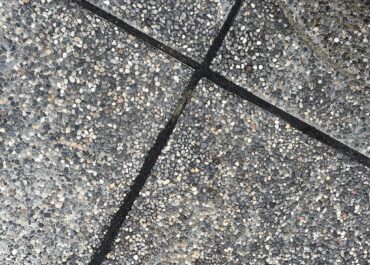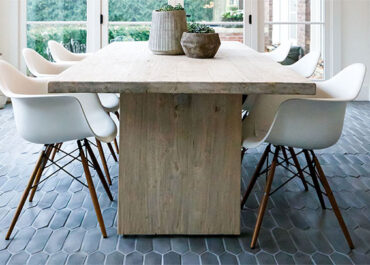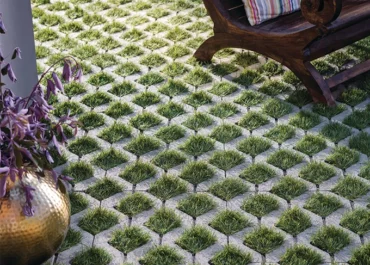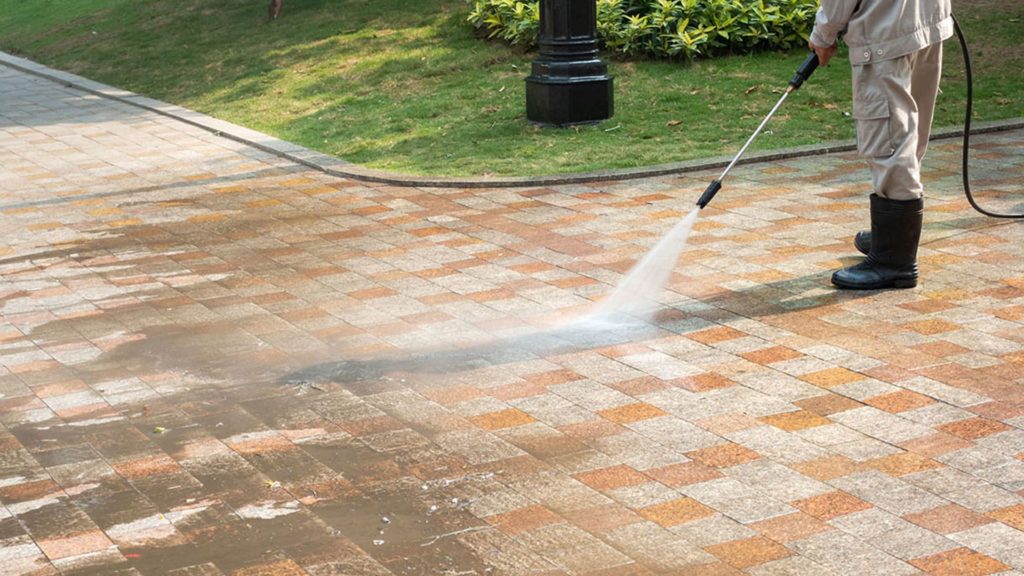
Despite being extremely pretty, brick pavers will need some cleaning from time to time. Exposure to climate conditions and constant traffic may show its earliest signs with dark stains, mildew and moss, as well as eventual cracks on the surface. For that, however, there are simple solutions – you don’t need to worry at all. So what cleans brick pavers exactly?
Well, there are some things that can be done for the ideal results. In this brief step by step, we’ll guide you through some tips on how to clean your brick pavers the right way.
If you’d like to read about sealing – which is an entirely different procedure to revitalize your project – click here to be directed to a more detailed article.
Cleaning brick pavers: step-by-step
Follow the next steps for a general checkup on your project. This is a simple and efficient way to get rid of most undesired stains and marks on your brick pavers. You will need:
- stiff-bristle scrub brush
- broom
- garden hose
- gloves
- handheld sprayer
- preferable cleaning solution
- STEP ONE: Clearing the area
For starters, make sure the temperature isn’t so high – we don’t want our cleaning substances drying off too soon. Begin by removing moss growth, weeds and other plants between the paver joints, and be cautious not to loosen your bricks in the process. Faulty pavers are not ideal here, so now might be a good time to install some new ones.
Read more about the cost of laying brick pavers here.
- STEP TWO: Scrubbing the dirty spots
Put on your gloves. Alongside hot water, choose a nice cleaning solution – some common ones include mild dish soap, white vinegar and commercial cleaners such as Simple Green. (For bricks that present a greenish or blackish hue, you can also use bleach in a one-to-one ratio to get rid of the lichen.) Upon coating the area with water, apply the cleaning solution in small sections – so as to not let it dry anywhere else – and scrub it after a few minutes.
Using a pressure washer here might be of great assistance, albeit fatal for old pavers. Consult an expert beforehand.
- STEP THREE: Rinsing the surface
After removing all unwanted residue and dark stains, rinse the whole area with a regular hose. Avoid leaving little ponds of water in between the pavers, as well as taking the sand out of them. For the final touches, use the broom to sweep the drying pavers.
Repeat the sweeping process in a day or two.
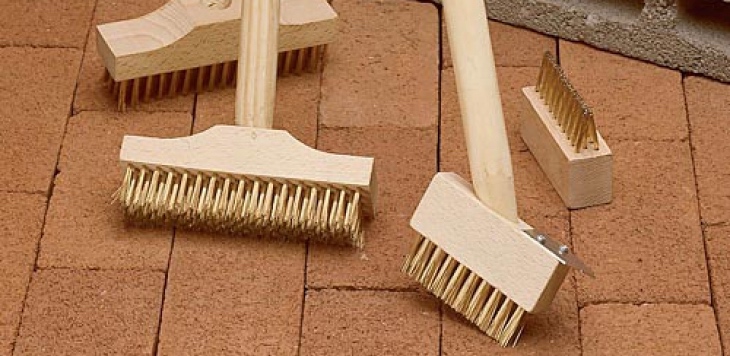
Alternative methods to clean brick pavers
Even after going over the basic steps, keep in mind there are several components that can really damage your pavers. For a complete removal, some might require more effort than others. We’ve divided specific ones that might occur and how to properly deal with them.
- Tyre marks
To remove tyre marks from your driveway, use a degreaser 612 or a Graffiti remover. Pour the selected chemical into a stiff-bristle scrub brush and wash the area afterwards.
- Mortar stains
It’s extremely important to protect yourself right now, because hydrochloric acid is the only efficient solution for this one. Remove all mortar dags with a metal or wooden scraper, saturate the area below with water and use the correct ratio of acid indicated by the manufacturer. Allow the solution to rest on the brick for a few minutes before scrubbing, always avoiding the joints, then rinse completely.
Do not use this method on Old Red Sandstock or Tuscany Bricks.
- Efflorescence
This happens when deposits of salt are formed on the surface of bricks by a constant flow of water. The only way to prevent this is by fixing the source itself, which sometimes can require professional help. Afterwards, the best removal method is brushing off the deposit with your stiff-dry bristle brush when the liquid has dried out.
Maintenance routine
After all that, we strongly recommend you establish a monthly cleaning routine. For quality of life reasons, of course. That will prevent any kind of extra work down the line, which might be something worth considering in a big household. Just like your inside floors and furniture, taking good care of your backyard or front driveway is hygienic – and also a leading factor for a valued curb appeal in the neighborhood.
Also, be extremely careful with masonry. When talking about internal brickwork, the best course of action is calling a specialist; it’s a tricky and delicate job that you don’t want to mess up permanently.
Contact Eagle Pavers today
As a branch of Eagle Stones, our staff has expertise in all paver-related business and counts with the best supply in town. We can help you with anything you need! Share your project ideas with us so we can get started right away – or, in case you want to browse some more, check out the online catalog for porcelain pavers to see all the alternative options available.
We’ll be waiting for you!


